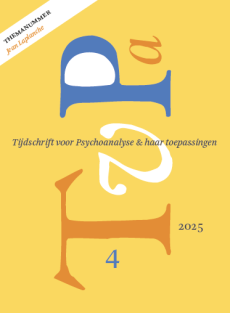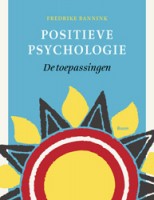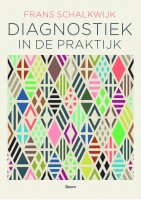Verslaving en het niet kiezen voor de ‹levengever›
Summary
Addiction and turning away from the life-giver
Addiction is a complex condition and has biological, psychological and social dimensions. From a psychoanalytic (object-relational) point of view addiction is accompanied by and originates in severe relational problems. To cope with their psychological difficulties, addicted persons prefer to (ab)use addictive substances or activities rather than discuss their problems. They are unable to tolerate their deficiency and deny its existence. The use of addictive substances is synonymous with flight to a symbiotic relationship with a self-object. There is a major incapacity in addicted persons to solve their difficulties with other people. These problems originate in an early response to trauma, a turning away from the primary carer and a choice of self as a love-object, a process in which the life-giver is abandoned. Treatment requires the opposite. Addicted persons need to build a relationship, discuss their difficulties and find comfort there. In time they can develop these capacities in themselves.
Literatuur
- Alcoholics Anonymous (1952). Twelve steps and twelve traditions. New York: Alcoholics Anonymous World Services, Inc.
- Babor, T.F. & del Boca, F.K. (2003). Treatment matching in alcoholism. Cambridge: Cambridge University Press.
- Bion, W.R. (1959). Attacks on linking. In W. R. Bion, Second thoughts (p. 93-109). Londen: Karnac, 1967.
- Büchner, U. (2002). Rückfallbearbeitung – psychoanalytisch orientiert. Sucht, 48, 95-97.
- Ceysens, E. (2005). Hyperindividualisme, narcisme aan het begin van de 21ste eeuw. In M. Kinet & L. Moyson, Grootse patiënten, kleine therapeuten (p. 85-95). Antwerpen / Apeldoorn: Garant.
- Flores, P.J. (1996). Group psychotherapy with addicted populations – An integration of twelve-step and psychodynamic theory. New York: The Haworth Press.
- Forrest, G.G. (1983). Alcoholism, narcissism and psychopathology. Northvale NJ/Londen: Jason Aronson.
- Freud, S. (1897). ‹ Brief#79 ›. In M. Bonaparte, A. Freud & E. Kris (red.), The origins of psychoanalysis – Letters to William Fliess (p. 238-240). New York: Basic Books, 1954.
- Freud, S. (1911). Formuleringen over de twee principes van het psychisch gebeuren. Sigmund Freud Nederlandse Editie: Psychoanalytische Theorie 1 (p. 9-24). Amsterdam: Boom.
- Freud, S. (1920). Aan gene zijde van het lustprincipe. Sigmund Freud Nederlandse Editie: Psychoanalytische Theorie 1 (p. 92-163). Amsterdam: Boom.
- Freud, S. (1928). Dostojevski en de vadermoord. Sigmund Freud Nederlandse Editie: Cultuur en Religie 2 (p. 198-223). Amsterdam: Boom.
- Green, A. (1983). Narcissisme de vie, narcissisme de mort. Parijs: Les éditions de minuit.
- Hebbrecht, M. & Vandermeeren, R. (2007). Narcisme, alcoholisme en tegenoverdracht. Tijdschrift voor psychotherapie, 33, 197-209.
- Khantzian E.J. (1999). Treating addiction as a human process. Northvale NJ: Jason Aronson Inc.
- Levin, J.D. & Weiss, R.H. (1994). The dynamics and treatment of alcoholism – Essential papers. Northvale NJ/Londen: Jason Aronson.
- Loose, R. (2002). The subject of addiction – Psychoanalysis and the administration of enjoyment. Londen: Karnac.
- Marlatt, G.A. & Gordon, J.R. (1985). Relapse prevention. New York: The Guilford Press.
- Monjauze, m. (2002). Comprendre et accompagner le patient alcoolique. Parijs: Editions in press.
- Reymann, G. (2002). Evidenzbasierte Psychotherapie Alkoholabhängiger – Der Beitrag psychodynamischer Therapieverfahren. Sucht, 48, 182-190.
- Rosenfeld, H. (1987). Impasse and interpretation – Therapeutic and antitherapeutic factors in the psychoanalytic treatment of psychotic, borderline and neurotic patients. New York: Brunner-Routledge.
- Symington, N. (1993). Narcissism – A new theory. Londen. Karnac Books.
 © 2009-2026 Uitgeverij Boom Amsterdam
© 2009-2026 Uitgeverij Boom Amsterdam
ISSN 1382-516x
De artikelen uit de (online)tijdschriften van Uitgeverij Boom zijn auteursrechtelijk beschermd. U kunt er natuurlijk uit citeren (voorzien van een bronvermelding) maar voor reproductie in welke vorm dan ook moet toestemming aan de uitgever worden gevraagd:
Behoudens de in of krachtens de Auteurswet van 1912 gestelde uitzonderingen mag niets uit deze uitgave worden verveelvoudigd, opgeslagen in een geautomatiseerd gegevensbestand, of openbaar gemaakt, in enige vorm of op enige wijze, hetzij elektronisch, mechanisch door fotokopieën, opnamen of enig andere manier, zonder voorafgaande schriftelijke toestemming van de uitgever.
Voor zover het maken van kopieën uit deze uitgave is toegestaan op grond van artikelen 16h t/m 16m Auteurswet 1912 jo. Besluit van 27 november 2002, Stb 575, dient men de daarvoor wettelijk verschuldigde vergoeding te voldoen aan de Stichting Reprorecht te Hoofddorp (postbus 3060, 2130 KB, www.reprorecht.nl) of contact op te nemen met de uitgever voor het treffen van een rechtstreekse regeling in de zin van art. 16l, vijfde lid, Auteurswet 1912.
Voor het overnemen van gedeelte(n) uit deze uitgave in bloemlezingen, readers en andere compilatiewerken (artikel 16, Auteurswet 1912) kan men zich wenden tot de Stichting PRO (Stichting Publicatie- en Reproductierechten, postbus 3060, 2130 KB Hoofddorp, www.cedar.nl/pro).
No part of this book may be reproduced in any way whatsoever without the written permission of the publisher.
Nieuwsbrief Boom Psychologie
Meld u nu aan en ontvang maandelijks de Boom Psychologie nieuwsbrief met aantrekkelijke aanbiedingen en de nieuwe uitgaven.
Aanmelden


